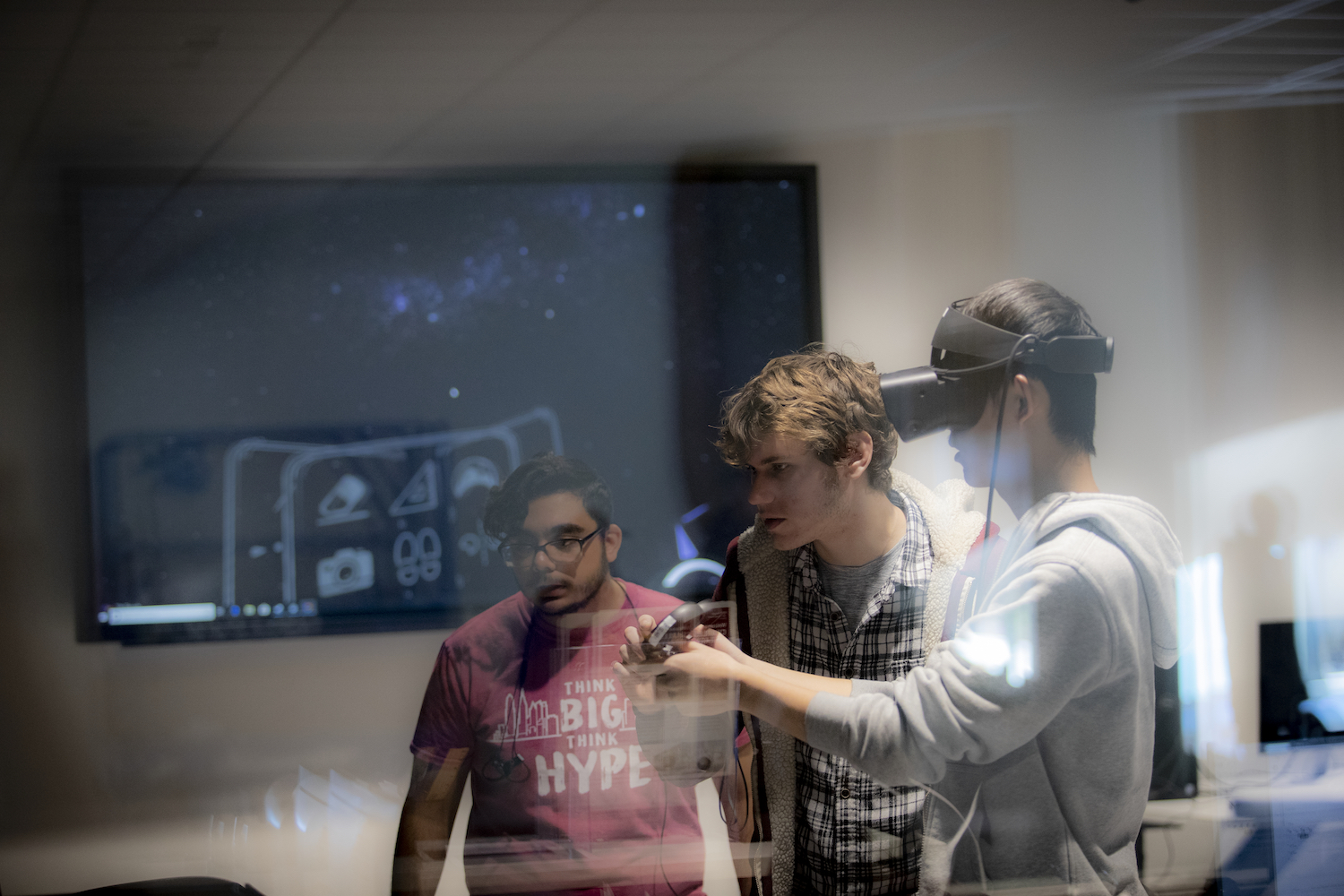The Makerspace studio at Charles Library in 2019
Tilan Tang, assistant professor of finance, was recently awarded Temple University’s Innovative Teaching with Makerspace Technology Grant sponsored by the Loretta C. Duckworth Scholars Studio, University Libraries and the Center for the Advancement of Teaching (CAT).
The Loretta C. Duckworth Scholars Studio Makerspace, located in Charles Library on Temple’s Main Campus, provides a hands-on environment where students work with a variety of digital fabrication tools, virtual reality and electronics technologies. The grant enables faculty like Tang to use these technologies to build an engaging, Experiential Learning experience for students.
Tang is the only member of the Fox School faculty to receive this award this year. She will be using this grant to help her develop data visualization projects with virtual reality equipment.
“Virtual Reality (VR) is the major tool that will be used in this grant project,” says Tang. “This technology will improve students’ perception and understanding of the impact of various financial variables on firm decisions.”
Currently, Tang oversees and coordinates the capstone course (FIN 4596) in the finance department. Tang’s approach to the course material engages students through Experiential Learning exercises, such as working with data from real-world business cases. The finance cases involve large volumes of data processing in statement analysis, forecasting and project valuation.
“Data visualization through VR, which is the Makerspace tool, could fundamentally change the way that the students interact with and interpret data,” says Tang. “It can also efficiently help decision-makers understand and gain insights from huge data sets. The Markerspace grant offers the opportunity for us to pursue data visualization software and utilize virtual reality tools.”
Additionally, this grant will allow Tang to use the most current data visualization software directly from the global data visualization market, giving them the best and most realistic experience.
“With access to this software, I plan to design a private business case setting in which specific financial data will be loaded, and then I will design a visualization model for students to practice the data analysis via VR tools,” says Tang. “I also plan on having students visit the Duckworth Scholars Studio to get familiar with the use of VR equipment in the university.”
Tilan emphasized how the business world has become more data-driven, so it is the responsibility of faculty to prepare students for business analytics to become a large part of their future careers.
“The increasing adoption of data visualization in small and medium enterprises is expected to fuel the market demand of related talents, yet there is a shortage of skills in the current labor force,” says Tilan. “Mastering such technology in data visualization will help prepare students for future employment and career needs.”
This will be the first time that they are building up data visualization projects in finance courses. Tilan estimates working closely with CAT and Duckworth Scholars Studio in fall 2021 to incorporate the application of data visualization through VR in business cases, and then launch the pilot test in spring 2022.

